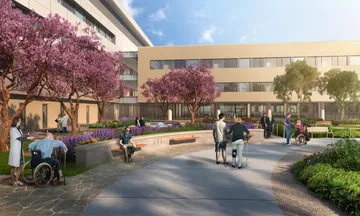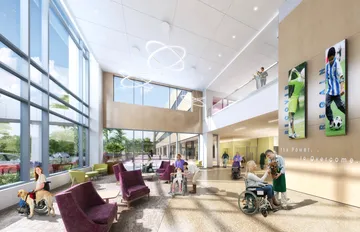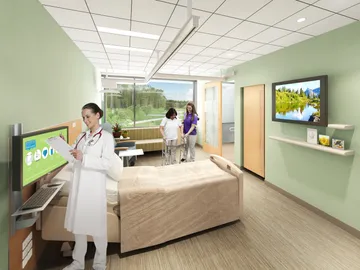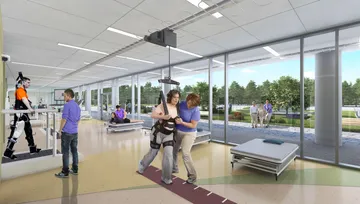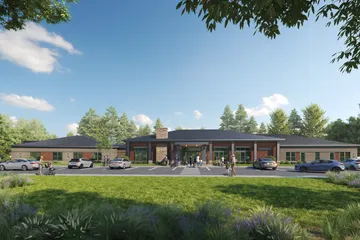Sheltering Arms partnered with the VCU Health System to create a new world class rehabilitation medicine program, bringing research expertise to their long standing highly regarded reputation in rehabilitation services and broadening their program to include treatment of traumatic brain injury. Their goal was to be ranked in the Top 5 comprehensive rehab programs in the U.S. Kahler Slater was engaged to deliver a campus master plan including future phase II ambulatory care and obtain Certificate of Public Need (COPN) approval through schematic design for a new, phase 1, 114-bed destination inpatient rehabilitation hospital.
Kahler Slater facilitated extensive benchmarking of the highest ranked national programs as well as multiple visioning sessions with Sheltering Arms physicians, staff, the community (including patients and major philanthropic supporters), and with executive leadership of the two organizations. The visioning sessions utilized creative activities to establish project drivers, aspirational objectives and build consensus on project direction for the COPN process.
Design features included 114 private beds accommodating the full range of rehabilitation patient diagnosis and treatment, warm water therapy pools, transition apartments and in-unit shared dining facilities. The program incorporates a hybrid gym approach; a combination of satellite gyms on the bed floors with a large central therapy gym, allowing patients to “graduate” to a new environment and practitioners to teach and implement translational research in a variety of settings. A key site design feature is a network of outdoor therapy areas and paths allowing patients and family members the opportunity to extend the healing environment. The campus master plan also allows for flexible expansion for additional inpatient rehabilitation, outpatient rehabilitation, medical office building space for related specialty care, and structured parking to accommodate future program needs.



